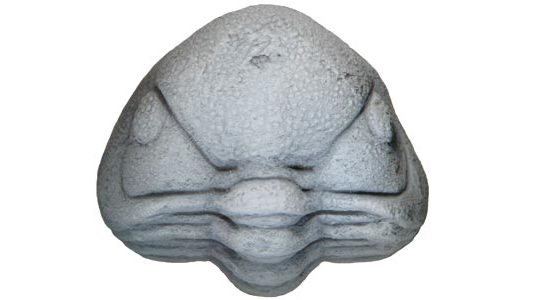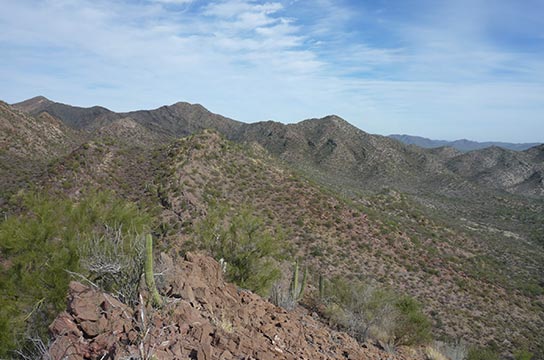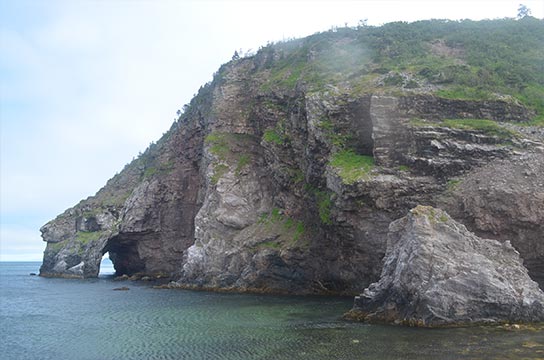OBJECTIVES
In response to societal demands for a better understanding of geobiological processes such as the ones triggering ecological crisis as we experience today, and to new considerations of geological archives as scientific and societal heritage, but also as a limited resource to be managed in a sustainable way, numerous applications of palaeontology (such as environmental micropaleontology , science communication and journalism, heritage management and environmental protection) appeared the last decade. The objectives of Pangea Program is, by integrating strengths within a consortium of 4 acknowledged European universities and associated partners, to respond to the academic challenges raised by these renewed needs in palaeontological expertise.


A STRONG CONSORTIUM
The University of Lille (France), Uppsala University (Sweden), the University of Minho (Portugal) and the National and Kapodistrian University of Athens (Greece), capitalising on their existing collaborations, and their complementarity in terms of specialisations, working methods, and collaboration partners produces a programme that could not be offered by one organisation alone.
The University of Lille is in charge of the general coordination and initiation of the Pangea programme activities in collaboration with the partners.
The Academic Board or Executive Board is formed by the local coordinators of each partner university (Lille, Uppsala, Athens and Minho). This Academic Board meets at least twice a year (or more often if necessary). It coordinates the programme’s development and delivery and acts as a forum consultation and cooperation for the implementation of the Pangea Master Programme through Partner institutions.
A PROGRAMME OF EXCELLENCE WITH A UNIQUE SPECIALISATION
The educational aim of the programme is to qualify students to a level of excellence in one of the three specialized fields of Earth Sciences: Palaeobiology, Geoconservation and Applied Palaeontology. The common goals of these three streams include development of the following abilities:
- To conduct independent analysis, to define a thesis in Earth Sciences (problem) and to construct a research programme based on existing knowledge, literature and independent observations,
- To solve complex problems including the independent use of observation, measurement and model methods,
- To present project results comprehensively, both orally and in writing,
- To work in a team, both in a leading function or within a collaboration.
By bringing together forces and specialization, students will be offered 3 complete tracks targeting 3 possible professional integrations depending their sensibility and professional project.

PANGEA HAS BEEN DESIGNED TO OFFER A HIGH QUALITY EMPLOYABILITY
The programme has been designed to offer a unique specialisation to its students and skills that will make them attractive to potential employers and ensure fast and high quality employability to face changing demand, with an employment outlook of geoscientists planned to increase faster than the average in the next years.
The Palaeobiology track (Lille-Uppsala) will mostly train students to academic careers.
Future scientists following the Palaeobiology profile will commonly find careers in the following organizations:
(a) Universities, Geological surveys, National History Museums (curator), through a sound preparation for a doctorate or lecturer, technician, research assistant, curator;
(b) Small and intermediate size consulting companies working in the field of engineering geology or hydrogeology;
(c) International engineering companies working in the energy, traffic and waste sector;
(d) Environmental agencies and cooperatives with management positions.
The Applied palaeontology track (Lille-Athens) has been designed, in collaboration with industrial partners, to prepare students for their integration into industries involved in reservoir exploration and exploitation, or state agencies such as Geological Surveys, a still important job market internationally. In addition, emphasis placed on geoenvironmental applications is aimed at preparing students to the rapidly increasing implication of palaeontologists in environmental geosciences (environmental monitoring or impact assessment).
Graduates holding a Master’s Degree in Applied Palaeontology are qualified to work in the following areas:
(a) Consulting or project based work in the area of natural resource exploration and extraction (oil-, gas and mineral prospecting) for international companies;
(b) Consulting or project based work in the area of environmental impact assessment (including anthropogenically mediated global change), environmental monitoring, and bioremediation;
(c) Geotechnical investigations for consulting companies, public non-profits or private insurance used for geotechnical decisions and risk assessment;
(d) Consulting work in civil engineering for groundwater management or geotechnical evaluation;
(e) Research with a Doctorate leading to a career in industry or academic research.
The Geoconservationtrack aims to meet an increasingly international socio-economic demand engendered by the development of geoheritage management, geotourism, and science communication. This demand relates to (1) the rising number of nationally and internationally recognised natural sites of geological importance, beauty and heritage, stimulating development of geotourism (2) increasing demand for geology graduates with transferable communication skills.
After the conclusion of the Geoconservation programme, students may enter:
(a) Staff of protected areas, natural reserve and geoparks, as manager, guide, presenter, municipalities, public institutes, technical offices, schools and universities as consultant in local sustainable development or facilitator;
(b) Public authority service (national and local) on urban planning projects;
(c) Research towards a doctorate;
(d) Museums – as science communication and exhibition manager.
Not only the palaeobiology track, but also the applied paleontology and, subsidiary, the Geoconservationtracks are also designed to offer students the best opportunities to continue their studies at a doctorate level.